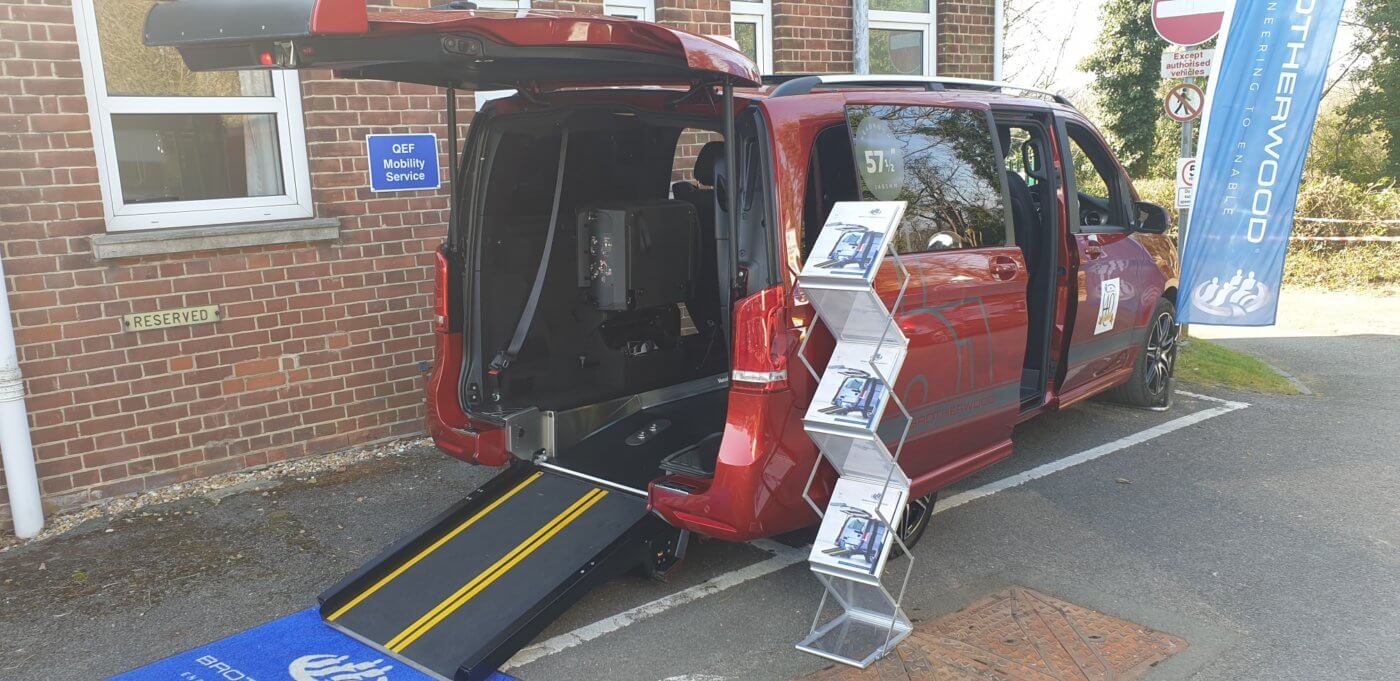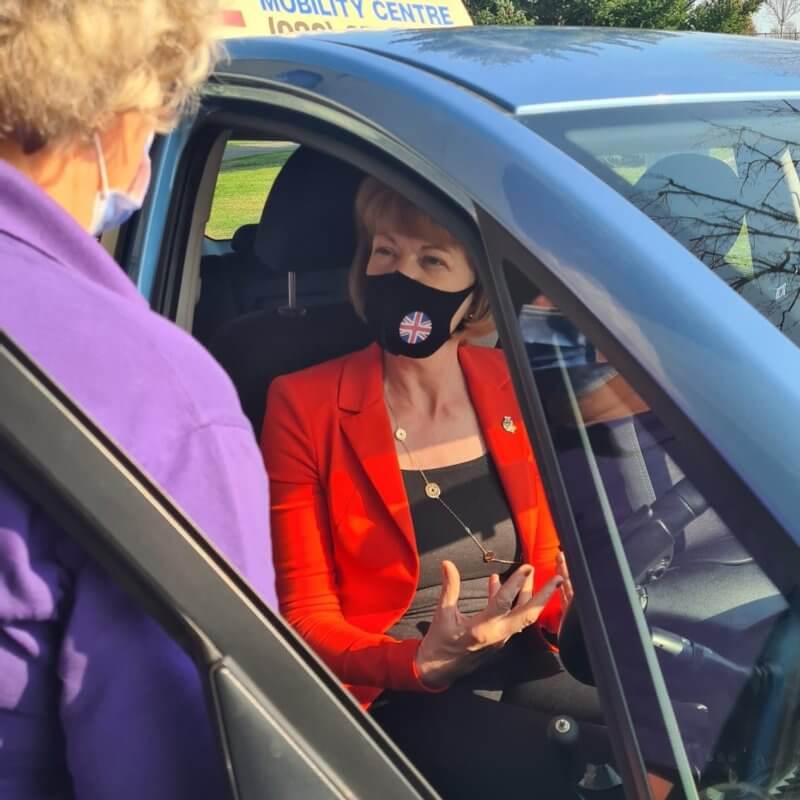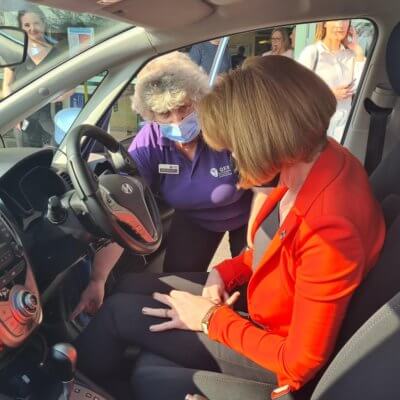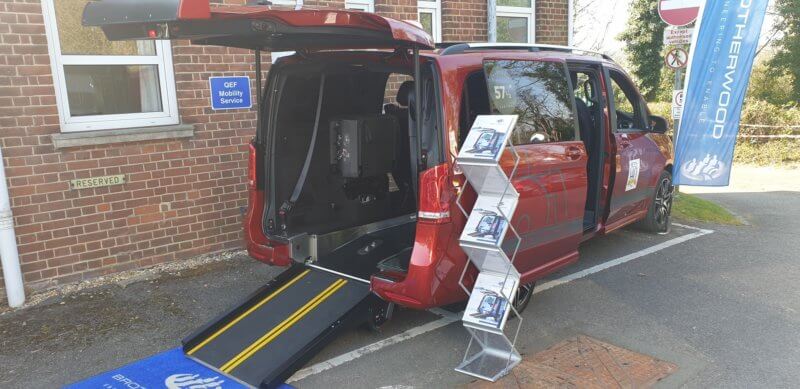The government has today (29 March 2022) announced a £2.5 million package to support disabled people travel more confidently on our transport network as it reopens after coronavirus (COVID-19).
The new funding will include £1.5 million allocated to support all 13 Mobility Centres across England roll out a ‘Hubs Mobility Service’. These vital services help people stay mobile after they have been advised to stop driving or if they are unable to learn to drive due to their disabilities, offering them advice on alternatives such as powered wheelchairs, community transport and local services.
The hubs have been successfully piloted at 7 of the centres over the past 2 years and have already helped over 4,000 people regain and retain confidence to travel. The real-life benefits of staying mobile were highlighted in the Inclusive Transport Strategy, which sets out the link between reduced mobility and access to transport with loneliness and social isolation.
Ahead of the announcement, Accessibility Minister Wendy Morton visited Queen Elizabeth’s Foundation (QEF) for Disabled People’s Mobility Centre in South London last Thursday (24 March 2022), where she met people who had benefitted from the Mobility Centre’s services, to help them stay connected and independent.
Wendy Morton Accessibility Minister said:
This funding will help people travel with confidence and comes just in time as our nation rebuilds from COVID-19.
We want to help everyone to be mobile and these vital Hubs Mobility Services will provide life-changing travel advice, keeping people connected to their friends, work and support networks.
I was delighted to meet people benefitting from this service and to hear about the difference this important work has made to their lives.
The visit coincided with QEF’s 40th anniversary, celebrating opening the UK’s first Mobility Centre and their first Mobility Open Day since the pandemic.
The Minister was able to see and experience some of the assessments funded by the Department for Transport and carried out at Mobility Centres, including for people interested in using wheelchair accessible vehicles, adapted cars and powered wheelchairs.
Karen Deacon, QEF Chief Executive, said:
We were delighted to welcome Minister Wendy Morton to QEF’s Mobility Service to discuss how important it is to support people to improve their independent mobility and access public transport, to enable people to live the life they choose.
Whether that be for young children through the fantastic Bugzi powered wheelchair, or people with a life-long disability or who have had a life changing medical event.
Independent mobility and public transport should be equally accessible to everyone, and it was great to see the Minister personally experiencing the challenges some face when relearning to drive in an adapted car and listening to the day-to-day travel challenges disabled people face on public transport.
DfT has also announced that it will provide £1 million to lifeline ferries and seaports serving the Isle of Wight and Isles of Scilly to improve accessibility. The funding will improve access to services for passengers with disabilities.
The government has also confirmed that the 1,000th accessibility audit has been conducted at Oban station in Scotland. As part of the Williams-Shapps Plan for Rail, the government committed to audit all 2,565 rail stations in Great Britain.
This 1,000th audit is a huge milestone as we highlight existing areas of excellence and identify scope for improvements. They will help produce a new public database, so people can better plan their journeys in advance and, along with input from disabled passengers, will shape future investment in accessible rail travel.
DfT has today also published a number of reports on transport accessibility:
- the Reference wheelchair standard research will inform the broader evidence base on design of new vehicles and transport infrastructure to meet mobility aid users’ needs
- the Wheelchair accessible taxi and private hire vehicle services research report, which was commissioned to understand current use and experience of wheelchair accessible taxi and private hire vehicles
- the second Inclusive Transport Strategy scorecard (2020 to 2021)monitors annual changes in metrics relating to disabled people’s travel and forms part of the overall evaluation of delivery against the strategy
- a report from the first Technology Research and Innovation Grant-Accessibility (TRIG-A) programme, which delivered a £600,000 investment to support small and medium sized enterprises developing accessibility technology in 2021.












